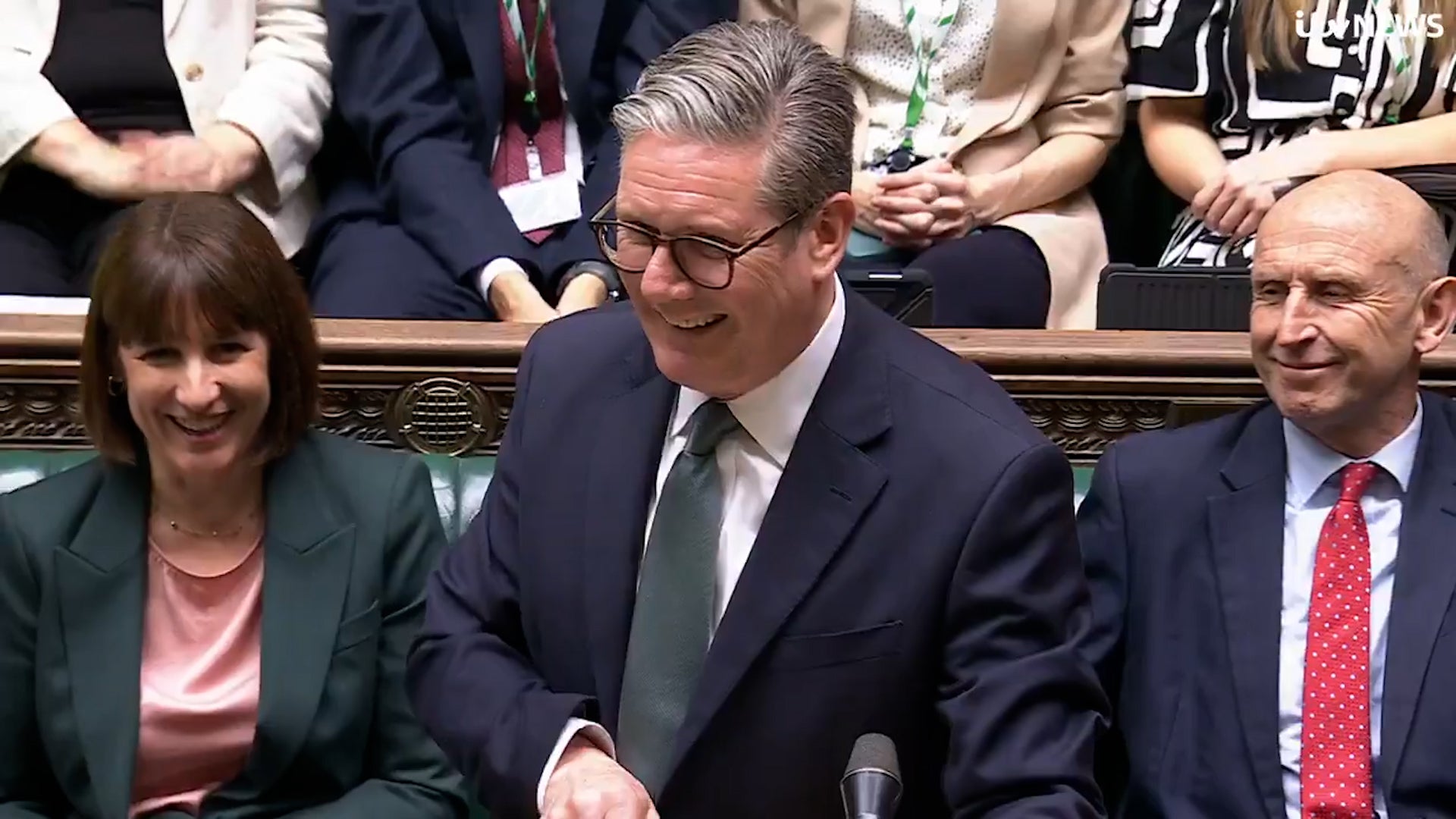The two rebellions Labour could face in Parliament today
Issues both at home and overseas are dividing Labour MPs
Support truly
independent journalism
Our mission is to deliver unbiased, fact-based reporting that holds power to account and exposes the truth.
Whether $5 or $50, every contribution counts.
Support us to deliver journalism without an agenda.

Louise Thomas
Editor
Sir Keir Starmer faces two potential Labour rebellions today as MPs continue to debate the bills unveiled in the King’s Speech last week.
There are 11 amendments to the speech tabled by different groups of MPs. Speaker Lindsay Hoyle will decide at the end of the session which will be voted on by MPs.
The two most likely to be worrying Sir Keir will be the one’s tabled by his own MPs.
Several Labour members have put forward an amendment on the two-child benefit cap, which has been backed by 21 more MPs, as well as an amendment to stop arms sales to Israel, which has been backed another 26.

Any amendments put to the vote will require votes from over half of the MPs present to pass. Labour is likely to enforce a three-line whip to avoid a major embarrassment, as its MPs will be forbidden to vote aginst the party.
And with the government’s massive, record-breaking majority, it’s unlikely that enough MPs will vote against them to pass any amendments that are voted on.
However in 1997, Tony Blair similarly held a massive majority after his election victory, and still faced a rebellion. In the December of that year, his policy to cut benefits for lone-parents divided the party. While the popular Labour prime minister was able to win the vote, many saw the episode as very damaging to the prime minister.
Here’s everything you need to know about the two big issues that could split the Labour party today:
The two-child benefit cap
The party has been under pressure to scrap the two-child benefit cap in recent weeks, with voices from across the political spectrum calling for an end to the controversial policy.
The policy prevents parents from claiming universal credit or tax credit for more than two children.
As per tradition, today’s amendment would add at the end of the King’s Speech the ‘regret’ that it ‘does not include measures to remove the two-child cap on benefits’.
The revision, tabled by Labour MPs including Zarah Sultana and Kim Johnson also adds: ‘it is widely considered by economists and civil society organisations that removing the two-child cap on benefits would be the single most cost effective and impactful policy to immediately alleviate child poverty levels in this country’.
It is one of four amendments that mention the two-child benefit cap, but given the number of Labour MPs backing it, is the only one that remains likely be voted on.
Related: What is the two-child benefit cap?
Many were hoping the party would include a reversal of the 2017 Conservative policy in the King’s Speech. Instead, the party unveiled the ‘Children’s Wellbeing Bill’ which introduced free breakfast clubs for all primary school children, amongst other measures.
The party has also launched a taskforce for tackling child poverty, but critics say the quickest fix would be to lift the two-child benefit cap.
Analysis from the Child Poverty Action Group shows that lifting the cap would help one million children move away from poverty. Their findings also show that 93% of impacted parents say the policy makes them less able to afford food.
Ms Reeves has resisted calls to scrap the policy, saying she will not commit to “unfunded” pledges. The cost of lifting the cap is estimated to be around £3bn.
Britain’s arms sales to Israel
The Israel-Gaza conflict has become a key political issue in the halls of parliament over the past 18 months. Many MPs argue Britain is not doing enough to curb the violence unfolding the region.
Many campaigners and politicians say that Israeli PM Benjamin Netanyahu’s retaliation to the October 7 attacks in 2023 has gone too far. Latest estimates show that 38,000 have now been killed in Gaza, the majority being civilians.
The arguments come alongside a ruling from the International Court of Justice that Israel’s actions are approaching a genocide. Meanwhile the International Criminal Court has issued arrest warrants for several involved in the conflict, including Mr Netanyahu.
In light of this, Labour MPs including Apsana Begum and Richard Burgon have tabled an amendment which calls on the government to suspend export licences for arms transfers to Israel.
It adds that ‘this House must work to uphold international law in Israel and Palestine; express horror at the deaths of more than 38,000 people in Gaza and 1,200 in Israel’ and ‘note the widespread recognition of serious violations of international law in the conflict’.
The UK approved almost £57m worth of military goods for export to Israel from 2022 to June 2023, according to the Campaign Against Arms Trade (CAAT).
This is a relatively low amount when compared to the US’s annual £3bn ($3.8bn) in military aid to Israel, but many MPs have argued the move would indicate a national stance against the conflict.
Subscribe to Independent Premium to bookmark this article
Want to bookmark your favourite articles and stories to read or reference later? Start your Independent Premium subscription today.

Join our commenting forum
Join thought-provoking conversations, follow other Independent readers and see their replies
Comments